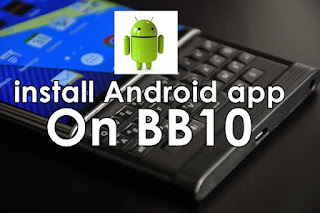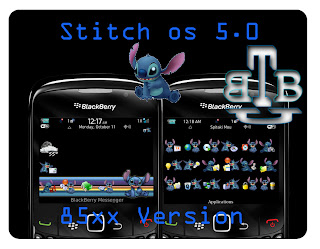How did BlackBerry get the names
How did the BlackBerry get its name?
Alexandra Zabjek
The Ottawa Citizen
Sunday, November 05, 2006
Five years ago, the word "blackberry" commonly referred to a small, prickly fruit that stains your hands and can be made into a tasty jam.
Today, any business type will tell you that a "BlackBerry" is a highly addictive device that -- oh, just a second. I've got an e-mail on my BlackBerry.
More Technology news
Hold on. Um, what was your question, again?
Waterloo's Research in Motion struck gold when it developed a portable wireless device that allows users to phone, get and send e-mail and browse the Internet. The name BlackBerry also appears successful, if only because it's become an integral part of business nomenclature. It's even spawned nicknames such as CrackBerry due to its addictiveness.
So, how did RIM make the connection between an e-mail gadget and a piece of fruit?
RIM asked Lexicon Branding in California to help name their most profitable product. Lexicon president David Placek says he steered away from names that were directly linked to the word "e-mail," since consumer research shows that word can increase clients' blood pressure. Instead, his team was looking for something "more natural, more entertaining and more joyful that might decrease blood pressure."
When someone pointed out that the tiny buttons on RIM's device looked like a collection of seeds, Lexicon began exploring different fruity names: strawberry, melon and an assortment of vegetables were all bandied about, with no success.
The company finally settled on blackberry because the word is pleasing to most ears and the device, at the time, was black, says Mr. Placek. Today, people routinely ask the Lexicon president how the name BlackBerry came to be, and he insists the naming process must be a creative one.
"BlackBerry sticks better than something like ProMail or MegaMail," says Mr. Placek. "If you want to get attention, you don't describe something, you create a new concept."
In the product naming world, a name like BlackBerry is a "fanciful" or "arbitrary" name, meaning that it has no connection to the product that's provided. For example, Apple and Yahoo are names aren't directly linked to computers or website search engines.
Choosing a fanciful name is risky because consumers have to know what the heck you're talking about. A company needs strong marketing muscle to ensure people connect the name to the goods, says George Frazier, a partner at the San Francisco naming firm Idiom. While RIM got incredible word-of-mouth advertising when the U.S. Congress invested millions in its device after the Sept. 11 terrorist attacks, the company has also promoted the device through special events, like giving BlackBerries to people attending last year's Academy Awards.
The biggest advantage to naming an electronic device after a piece of fruit, however, is that it's almost a guaranteed way to ensure a trademark for your product, says Mr. Frazier.
In the United States, the U.S. Patent and Trademark Office won't trademark generic names. For example, the term "hand-held communications device" wouldn't have worked for RIM because it would prevent competitors from using the term to describe their own products, says Mr. Frazier.
It is here that product naming becomes as much a creative process as it is a tricky legal manoeuvre. There are hundreds of naming companies and often a limited number of "available" names. Naming companies, which just 15 years ago were an obscure, fringe industry, can now charge thousands of dollars to nail the right name. "The reason we exist is this is hard to do. It's hard to create legally available names," said Mr. Frazier.
Alexandra Zabjek
The Ottawa Citizen
Sunday, November 05, 2006
Five years ago, the word "blackberry" commonly referred to a small, prickly fruit that stains your hands and can be made into a tasty jam.
Today, any business type will tell you that a "BlackBerry" is a highly addictive device that -- oh, just a second. I've got an e-mail on my BlackBerry.
More Technology news
Hold on. Um, what was your question, again?
Waterloo's Research in Motion struck gold when it developed a portable wireless device that allows users to phone, get and send e-mail and browse the Internet. The name BlackBerry also appears successful, if only because it's become an integral part of business nomenclature. It's even spawned nicknames such as CrackBerry due to its addictiveness.
So, how did RIM make the connection between an e-mail gadget and a piece of fruit?
RIM asked Lexicon Branding in California to help name their most profitable product. Lexicon president David Placek says he steered away from names that were directly linked to the word "e-mail," since consumer research shows that word can increase clients' blood pressure. Instead, his team was looking for something "more natural, more entertaining and more joyful that might decrease blood pressure."
When someone pointed out that the tiny buttons on RIM's device looked like a collection of seeds, Lexicon began exploring different fruity names: strawberry, melon and an assortment of vegetables were all bandied about, with no success.
The company finally settled on blackberry because the word is pleasing to most ears and the device, at the time, was black, says Mr. Placek. Today, people routinely ask the Lexicon president how the name BlackBerry came to be, and he insists the naming process must be a creative one.
"BlackBerry sticks better than something like ProMail or MegaMail," says Mr. Placek. "If you want to get attention, you don't describe something, you create a new concept."
In the product naming world, a name like BlackBerry is a "fanciful" or "arbitrary" name, meaning that it has no connection to the product that's provided. For example, Apple and Yahoo are names aren't directly linked to computers or website search engines.
Choosing a fanciful name is risky because consumers have to know what the heck you're talking about. A company needs strong marketing muscle to ensure people connect the name to the goods, says George Frazier, a partner at the San Francisco naming firm Idiom. While RIM got incredible word-of-mouth advertising when the U.S. Congress invested millions in its device after the Sept. 11 terrorist attacks, the company has also promoted the device through special events, like giving BlackBerries to people attending last year's Academy Awards.
The biggest advantage to naming an electronic device after a piece of fruit, however, is that it's almost a guaranteed way to ensure a trademark for your product, says Mr. Frazier.
In the United States, the U.S. Patent and Trademark Office won't trademark generic names. For example, the term "hand-held communications device" wouldn't have worked for RIM because it would prevent competitors from using the term to describe their own products, says Mr. Frazier.
It is here that product naming becomes as much a creative process as it is a tricky legal manoeuvre. There are hundreds of naming companies and often a limited number of "available" names. Naming companies, which just 15 years ago were an obscure, fringe industry, can now charge thousands of dollars to nail the right name. "The reason we exist is this is hard to do. It's hard to create legally available names," said Mr. Frazier.



Comments